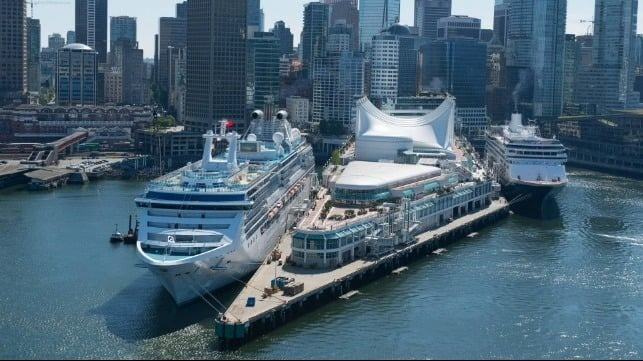Canada Enacts Mandatory Wastewater Regulations for Cruise Ships

Citing the importance of strengthening Canada’s environmental standards, government officials announced today that effective immediately they have moved from voluntary to mandatory measures governing cruise ship wastewater discharges. Having previously been criticized for lax standards and enforcement, they highlighted that the new measures align with or exceed standards set out by the International Maritime Organization.
“We need to ensure they are doing so in a more sustainable manner moving forward,” Omar Alghabra, Canada’s Minister of Transport said while recognizing the contribution of cruise tourism to Canada’s economy. He noted the direct and indirect contributions to the economy represent more than C$4 billion annually (US$3 billion) while highlighting the need to protect Canada’s waters and environment.
The rules were first introduced in April 2022 on a voluntary basis for measures addressing discharges of greywater (the drainage from sinks, laundry machines, bathtubs and showers, or dishwaters) and sewage (wastewater from bathrooms and toilets). They noted that greywater can contain detergents, cleaners, grease, and cooking oil while in addition to human waste sewage can contain pharmaceuticals and heavy metals.
The timing of the shift to mandatory regulations comes as the cruise industry is in peak season in Canada. Cruise ships transit Canadian coastal waters during their trips to Alaska with frequent stops in Vancouver and Victoria. The Alaska market is expected to set new records in 2023. Cruise ships also cruise along Canada’s east coast, as well as trips that also extend along the St. Lawrence River.
The rules apply to Canada’s waters below the Arctic region prohibiting the discharge of greywater or treated sewage within three nautical miles from shore where geographically possible. They are also strengthening the regulations on the treatment of greywater and sewage in the zone between three and twelve nautical miles offshore. Canada already has in place stricter regulations governing the use of its Arctic waterways.
Cruise ships are required to comply with the new regulations and will also undergo inspections. Canadian officials warn that a cruise ship found to be non-compliant will face enforcement actions. The monetary penalties are up to a maximum of C$250,000 (US$190,000).

that matters most
Get the latest maritime news delivered to your inbox daily.
Canada introduced the new voluntary regulations in 2022 responding in part to reports from environmental groups. The groups had used the pause in cruising during the pandemic as an opportunity to lobby for tighter restrictions. It was estimated that cruise ships released more than eight billion gallons of wastewater during the Alaska season in 2019.
The rules could be especially challenging for older cruise ships. Historically, the industry has outfitted some ships with increased capabilities so that they could operate in more challenging environments such as sailing to Alaska and parts of Northern Europe. Newer cruise ships the industry highlights have incorporated the most advanced wastewater treatment capabilities.
